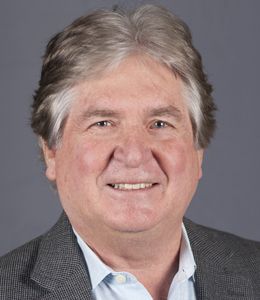
Richard E. Thurlow, PhD
- Associate Professor of Educational Psychology
Affiliated Programs
- Secondary Education (MEd & Certification)
- Secondary Education (BA)
- Elementary Education (MEd & Certification)
- Elementary Education & Special Education (PK-12) (BA & Certification)
- Education (PA Certifications & Endorsements)
Education
- PhD, Educational Psychology (Learning and Cognition) (1991)
University of Minnesota—Twin Cities (MN) - BS, Music Education (1974)
University of Minnesota—Twin Cities (MN)
About Me
After careers as a musician and music teacher, I returned to graduate school to study why some students had more difficulty learning than did others. At Minnesota, I studied with S. Jay Samuels, Paul van den Broek, and Randy Fletcher with a research focus on psycholinguistic theories of reading comprehension.
As a Research Associate at the University of Pittsburgh, I focused on science education, studying science books and constructivist teaching methods.
At Widener, I expanded my interests to include brain development, literacy development and applications of technology in research and instruction. My greatest excitement in teaching comes from the way that working with doctoral students spills over to my teaching of undergraduates and vice versa.
Research Interests
My overarching research interest concerns the nature of comprehension in general, which underlies my interests in reading comprehension and developmental psycholinguistics. My teaching duties continually push me to study current literature in educational psychology, research methods, and statistics. Misunderstanding and misuse of brain research in educational settings has led me to study brain research that is enhancing our understanding of language and reading difficulties so that my students will develop a higher level of sophistication with that literature.
Media Expertise
- Cognitive psychology applied to education
- Education psychology
- Reading comprehension
- Learning theories
- Science teaching
Publications
Thurlow, R. (2009). Improving emergent literacy skills: web destinations for young children. Computers in the Schools, 26, 290-298.
Thurlow, R., Ledoux, M., McHenry, N., & Burns, M. (2007). University and community partnerships: A full circle program. Essays in Education, 22.
Ledoux, M. W., Thurlow, R., McHenry, N., & Burns, M., Prugh, E. (2007). Graduate students and field experience: Aligning curricular goals with multiple measures of assessment. The Journal of Social Studies Research, 31, 12-19.
Professional Affiliations & Memberships
International Literacy Association (ILA), American Education Research Association (AERA)
Awards
- Service-Learning Fellow - Widener University
- R. Carter Kelso Service Award, Widener/PMC Alumni Association
- Technology & Literacy Initiative Grant, Raymond Foundation
In the Media
- eLearning Industry
